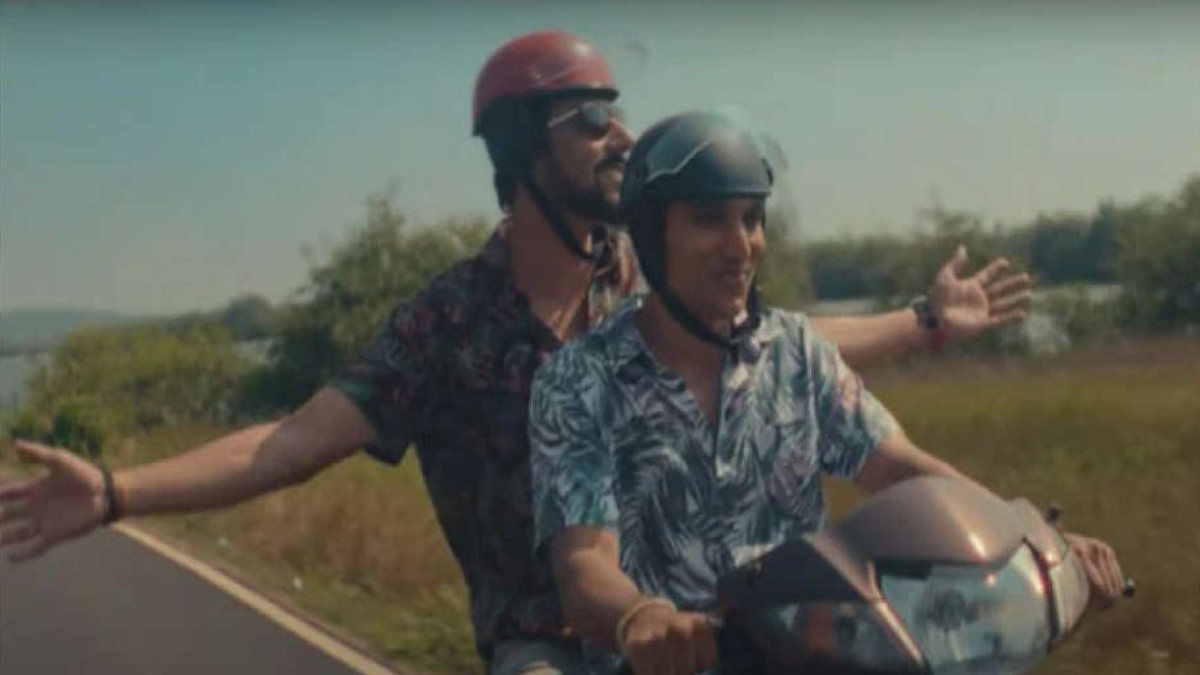
Anthology films and series are in vogue. And the latest in the list is ‘Modern Love Mumbai,’ which explores 6 stories of human connection or the absence of it. It’s actually a localized version of the hit US original anthology series, helmed by John Carney, based on the New York Times column of the same name. The Mumbai chapter of the Amazon Prime Video series brings together six filmmakers: Vishal Bhardwaj, Hansal Mehta, Shonali Bose, Dhruv Sehgal, Alankrita Shrivastava and Nupur Asthana. Each directs an episode dedicated to an aspect of love and we are not just talking about romance but self-love, platonic love, familial love, the love of partnerships, and the love that emerges out of kindness towards others and towards oneself. Modern Love Mumbai stars Fatima Sana Shaikh, Pratik Gandhi, Ranveer Brar, Arshad Warsi, Chitrangada Singh, Masaba Gupta, Ritwik Bhowmik among many others.
It’s important to mention here that modern here is merely a characteristic intended to highlight the urbaneness of the story settings and it does not refer to technology. How the highly cosmopolitan nature of a major city of a very important developing country like India shapes the lives of those who inhabit it, often connecting them but sometimes separating them. The 6 episodes serve as vignettes presenting different textures, parts and faces of Mumbai— the city of dreams.
Anthologies aren’t new to storytelling but what’s different here is the fact that the original US series is based on the New York Times column of the same. The first episode titled ‘Raat Rani’ follows a Kashmiri woman named Lali (essayed by Fatima Sana Sheikh) whose husband Lutfi, a security guard, suddenly dumps her, breaking her heart and shattering her dreams. All he leaves behind is his old bicycle. Can Lali overcome the odds? Directed by Shonali Bose, the episode is very lively and full of light-hearted moments. But it is also a little melodramatic with Sheikh repeatedly going over the top during her performance. The problem, however, doesn’t lie with her performance. The real culprit is some unimaginative and inconsistent writing.
The second episode titled ‘Baai,’ directed by Hansal Mehta, follows Manzu (essayed by Pratik Gandhi)—a gay man who grew up in a conservative household. Manzu is torn between the love for his partner and Baai, his ailing and ever doting grandmother. When he visits her in their ancestral home after many years, will Manzu find the strength to tell his truth to Baai? The subtle manner in which Hansal Mehta tacked the subject of homosexuality in Aligarh is totally absent here. Here, for some reason, he seems to be trying to imitate Made in Heaven and it just doesn’t work. It appears Pratik Gandhi will have to wait a little longer to find his next ‘Scam 1992’.
The third episode titled ‘Mumbai Dragon,’ directed by Vishal Bhardwaj, is perhaps the most interesting of the lot. Set against the backdrop of the Indian Chinese community, it tells the story of Sui, a single mother who overbearing love for her son gets threatened when he shares his portion of love with his girlfriend. The mother played by Yeo Yann Yann is easily the best thing about entire anthology. Also, the pairing of Meiyang Chang and Wamiqa Gabbi is very interesting. Apart from Anurag Kashyap yet again playing a sullen version of himself the segment works for the most part. Just like Sui’s Chinese recipes, ‘Mumbai Dragon’ has all the right ingredients.
The fourth episode titled ‘My Beautiful Wrinkles, directed by Alankrita Shrivastava, can best be described as a mellowed-down revisitation of the Ratna Pathak segment from ‘Lipstick Under My Burkha’. Sarika is a treat to watch as Dilbar Sodhi. The fifth episode titled ‘I Love Thane,’ starring Masaba Gupta and Ritwik Bhowmik, also does have its moments. Dhruv Sehgal succeeds in telling a compelling story of Saiba’s search for the right modern man amidst the plethora of men on dating apps.
The sixth and final episode titled ‘Cutting Chai,’ is directed by Nupur Asthana. It has a dream casting as far its two leads are concerned: Arshad Warsi and Chitrangada Singh. In her 40s, Latika is caught in the humdrum of marriage and motherhood as she deeply regrets not having fulfilled her dream of becoming an author. One eventful day she finds herself re-evaluating all her choices in life thus far, even her marriage as bittersweet memories and ‘what if’ fantasies run parallel in her mind (a la La La Land’s finale when Seb and Mia begin to imagine the different turns their lives would have taken had they married each other). Lakita eventually realizes that questioning her past is futile. While coming to terms with the reality of her life, she also decides to take control of the things herself so that she has no one else to blame for her successes and failures.
Despite its shortcomings and some major disappointments, ‘Modern Love Mumbai’ comes across as another interesting storytelling experiment. But there is no denying that the viewers are now getting a little restless with so much of experimentation happening with anthologies. The onus really is on the big OTT platforms to strive for a greater level of consistency.